Stormont talks: Path could 'wreak havoc' warns Villiers
- Published
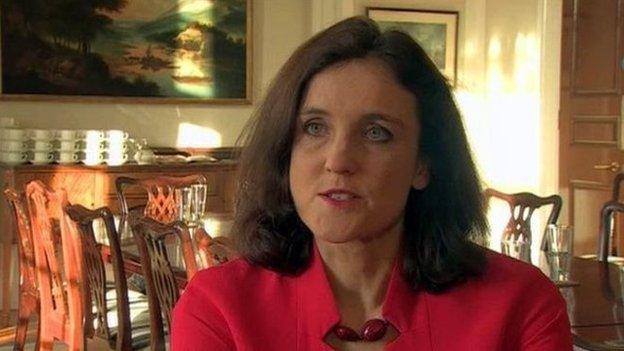
Theresa Villiers issued a warning ahead of Tuesday's Stormont talks
The Northern Ireland Secretary has warned political leaders to choose between the Stormont House Agreement or a path that "threatens to wreak havoc".
Theresa Villiers said that path could damage public services and undermine devolution.
She was speaking ahead of crisis talks at Stormont on Tuesday.
Northern Ireland's executive parties and the British and Irish governments are due to meet later.
It follows the defeat of the Welfare Reform Bill last week.
Under review will be the Stormont House Agreement that was struck in December between the parties and the two governments.
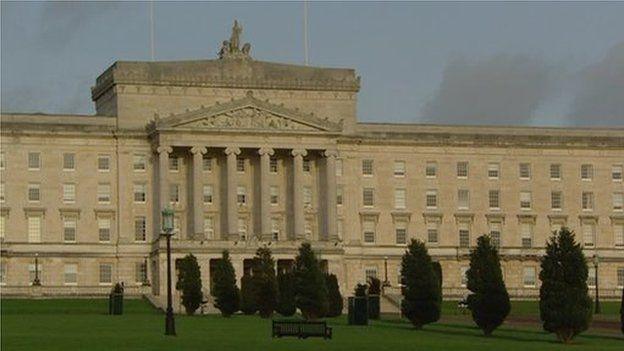
The Stormont House Agreement was negotiated last December
However, it is facing collapse over a failure to find agreement on welfare reforms.
Writing in the Irish News, Ms Villiers said the real threat to schools and hospitals were those who believe they can go on spending money without regard to the consequences.
She does not name Sinn Féin, but the party appears to be her target.
She said she wanted to correct "highly misleading caricatures" of the government's welfare reforms.
To those who reject the idea of being subject to any national spending settlement, she said the alternative would be complete fiscal autonomy, asking which taxes would rise and by how much to cover the transfer of money each year from the UK Treasury.
Ms Villiers rounded on those whom she called the "deficit deniers" and those who think they can go on spending money without any regard to the consequences.
They are the real threat to services, jobs and prosperity, she said.
As the British and Irish governments prepare to meet the parties on Tuesday, she concluded that there was a clear choice between what was agreed at Stormont House and a path that threatened to wreak havoc with public services and undermine devolution.
'Creative compromise'
Meanwhile, two senior US politicians have urged the talks leaders to come to a "creative compromise" so that the agreement does not "founder".
Bruce Morrison was part of a US delegation that visited Belfast just before the 1994 IRA ceasefire and Jim Walsh chaired the Friends of Ireland Committee in the US Congress.
Their letter was addressed to Ms Villiers, Irish minister Charles Flanagan and to the NI first and deputy first ministers.
They said: "We believe the basis of a compromise exists if agreement can be reached to accept the current cuts envisioned by the Stormont Agreement, coupled with an agreement by her Majesty's government to accept a three year moratorium on future welfare cuts."
Northern Ireland should be in a much better place economically and socially by that time, the letter said.
Last week, the nationalist Sinn Féin and SDLP made a petition of concern, a blocking mechanism that meant the Welfare Reform Bill did not get the required cross-community support.
The DUP now wants the government to take back welfare powers, but Sinn Féin said such a move would be unacceptable.
First Minister Peter Robinson, who suffered a suspected heart attack last week, said he would take part out of respect for the secretary of state but would not be renegotiating the agreement.
On Sunday, Sinn Féin MLA Alex Maskey said he did not want the Northern Ireland Assembly to collapse and believed a deal on welfare was still possible.
However, Mr Maskey said Sinn Féin "cannot and will not stand over" proposed cuts to the welfare system.
In March, Sinn Féin dramatically withdrew its support for the Stormont House Agreement.
'In the bin'
The agreement provided mitigation measures that would have protected benefit recipients in Northern Ireland who stood to lose out as a result of welfare reform.
The Democratic Unionist Party (DUP) minister who tried unsuccessfully to pass the Welfare Reform Bill in the assembly last week told the Sunday Politics that those protective measures have been "lost" and "put in the bin" because of the parties' failure to agree.
Social Development Minister Mervyn Storey accused Sinn Féin of being led by its "southern command" in the Republic of Ireland over welfare policy.
- Published31 May 2015
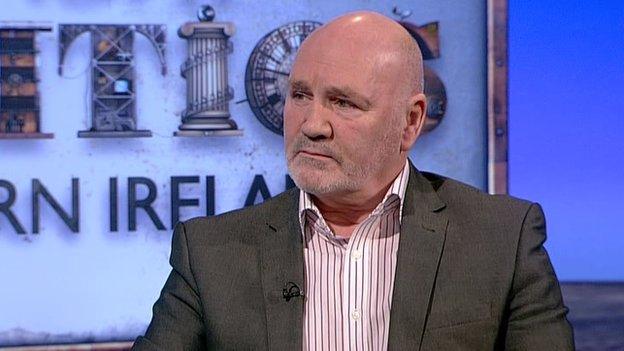
- Published21 May 2015
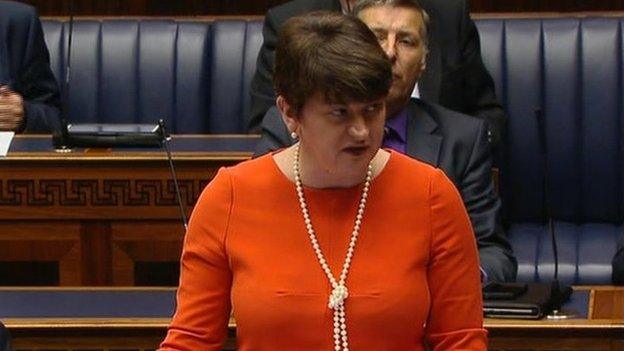
- Published30 May 2015
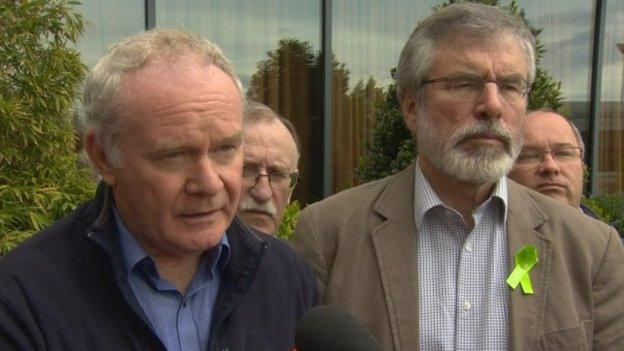
- Published27 May 2015
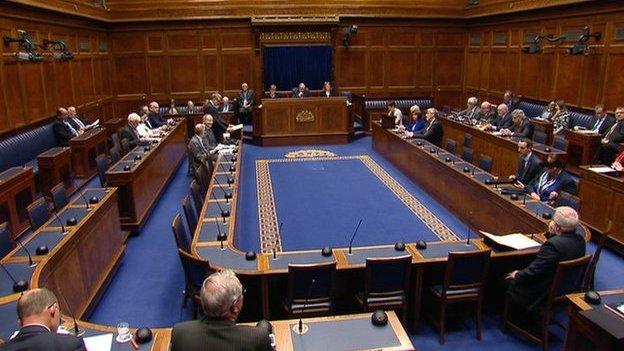
- Published27 May 2015
